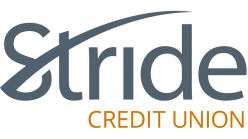
Learn practical financial tips to save money, not spend it, each time your paycheck arrives—from budgeting and saving your money to making credit payments and paying off debt.
At a Glance
- Know what you have
- Make a plan
- Pay yourself first
- Tackle high-interest debt
- Take a closer look at your spending habits
- Think about the big picture
- Adopt saving as a habit
Know where your money is
Account balances—bills, credit cards, savings, debts and income—you need to know exactly what you have, what you earn and what you owe when you sit down and decide how to manage your money. Sit down before each paycheck and look carefully at everything—chequing and savings account balances, utility balances, purchases made using credit and debit, savings, recurring payments, etc. Look for ways to save money in general by consolidating debts, renegotiating a loan or mortgage coming up for renewal, or by saving more and spending less.
Plan your short-term budget
A budget is nothing more than a plan. When you create and follow a simple plan for your money each paycheque, you will control your money instead of your money controlling you. Knowing where your money goes will leave you feeling empowered and in control. Use whatever feels comfortable to you—paper and pencil, fancy notebook and pen, a spreadsheet or one of many online tools and apps (try one of the Top Ten Budgeting Apps in Canada).
Pay yourself first
Saving regularly is more important than the actual amount you save. You don’t need to save a large amount each paycheque, you just need to save consistently. Financial advisers will suggest anywhere from 10 to 20% of your paycheck, but it’s best to set and maintain an amount that’s sustainable for you, even if it’s just 2% to start. Once you get into the habit of saving, having the financial cushion and confidence that goes with it will be its own reward, and you can increase the amount you set aside to whatever feels comfortable.
Pay down high-interest debt first
Do you have high-interest debts from credit card balances that you don’t pay in full each month? Pay down the balance with the highest annual percentage rate (APR) first, and make minimum payments on any other credit cards you may have. Once the balance is paid off on one, move onto the next and pay off that one. Interest is the cost of borrowing money, and the interest you pay on overdue balances can really add up. If you pay off your credit card each month, you can save significant amounts of money that you would otherwise pay in interest.
Review and revise your spending habits
Look carefully at where you spend money beyond necessary expenses. Read through your debit and credit card purchases to see where you’re spending money and how often. Look for recurring subscriptions you’re no longer using and for spending habits or big expenses to pull back on. Discover ways to cut back on spending, such as less take-out coffee and fewer lunches out. Put what you save into your savings account, even just $10 at a time.
Plan your long-term budget
Beyond your fixed and variable monthly expenses, there’s so much you can spend money on—TV app subscriptions, clothing, alcohol, coffee dates, video games, dinner out, hosting parties, concerts and more. These are still important, but they’re just not your basic needs. Take care of what’s essential first, including saving so you have a safety net, then see what’s left over and choose what you want to spend your money on. Just never spend more than you earn. Being accountable for your money doesn’t happen on a whim or overnight, you will feel more confident and in control of your finances and your life.
Adopt saving money as a habit
Like any habit, saving money takes time to develop. So start small. Put aside $10 or $20 per paycheque, then build up to $100 or $200 or whatever you feel comfortable with. Set up an automatic transfer on each payday to a savings account or TFSA, so you don’t even see the money in your chequing account. Add to your savings by finding things to do that cost little or no money. Cook at home instead of eating out or getting food delivered. Play sports. Go for walks or bike rides with friends or family. Have people over for games or conversation. Find new programs to watch on TV subscriptions you already pay for, instead of spending extra money at the movie theatre.
Key Takeaways
- Look at all your account balances—bills, credit cards, savings, debts and income—so you know exactly what you have, what you earn and what you owe.
- When you create and follow a simple budget each paycheque, you will control your money instead of your money controlling you.
- Saving regularly is more important than how much you save. Start small and develop a good habit so having a cushion and becoming confident becomes its own reward.
- Interest you pay on overdue credit card balances can really add up, so pay off credit card balances each month or pay down the balance with the highest interest first.
- Read through all your debit and credit card purchases to see where the money goes. Cancel subscriptions you don’t use and cut back on big or habitual expenses.
- Take care of what’s essential first, including saving so you have a safety net, then see what’s left over and choose what you want to spend your money on.
- Start small, then build up to whatever feels comfortable. Like any habit, saving money takes time to develop.
Contact us today and learn more about how you can save money each payday.
